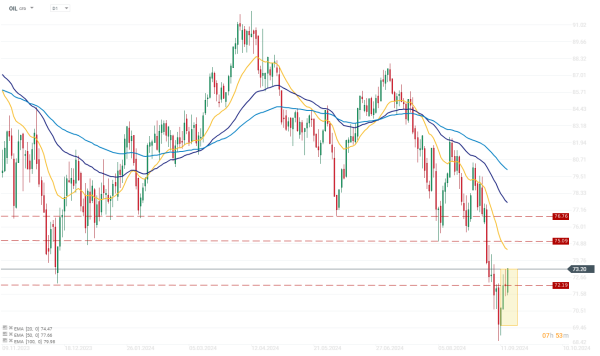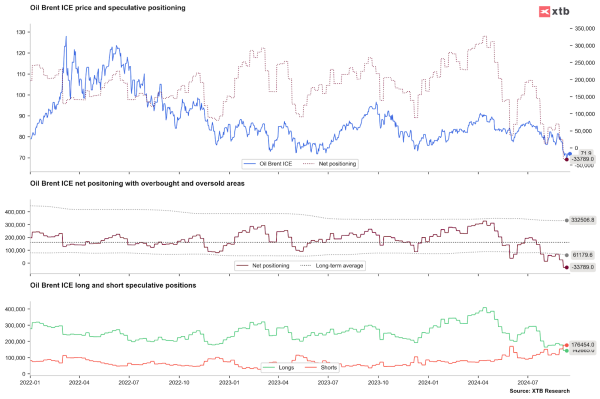OIL rises over 1% 🛢️
Oil supply problems outweigh weak data from China
Oil prices are gaining in today's session despite weak economic data from China. Commodity prices are still under pressure from supply constraints from the Gulf of Mexico and Libya. OIL is up more than 1.3% today, with OIL.WTI gaining 1.7%.
The market received negative signals over the weekend from China's economy, which remains the largest importer of oil. Industrial production grew by 4.5% in August (compared to 5.1% in July), the slowest pace of growth since March, and lower than the expected 4.8%. The deteriorating pace of the Chinese economy's recovery is one of the factors weighing on oil quotations. However, this factor remains overshadowed in today's session by problems in crude supply from both the US and Libyan sides.

Brent crude oil (OIL) contracts, after falling to this year's low near $69 last week, have already rebounded by about 5% and pierced the first resistance zone set at $72 by the local lows of December 2023. The next zone for investors to watch is at the psychological barrier of $75, which is reinforced by the local lows of August and January this year. Source: xStation
Production in the Gulf of Mexico is estimated to have fallen by about 700,000 barrels per day in recent days due to Hurricane Francine. In Libya, on the other hand, production continues to be limited to about 0.4 million barrels per day, with the average production level for the first half of the year at 1.3 million barrels per day. The EIA estimates an implied inventory decline of 0.9 million barrels per day in the third quarter of this year, and 1.0 million barrels per day in the fourth quarter. Only a restoration of production from OPEC+ next year could balance the market.
At the same time, speculative positions on Brent crude oil contracts are at their lowest levels in years. The net position of money fund contracts fell to negative values for the first time since 2011. This could lay the groundwork for a possible expiration of supply pressures from large funds, which have been reducing long positions since April. Oil prices have fallen more than 20% since then.
